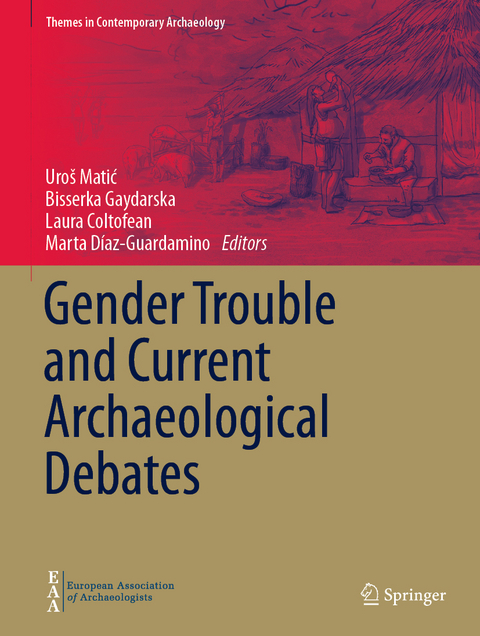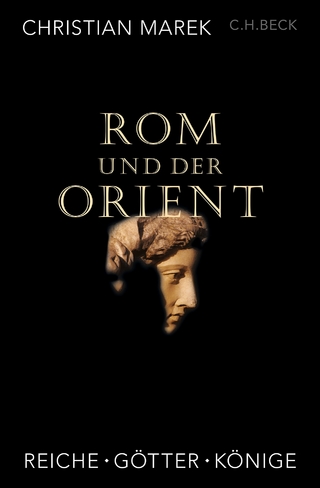
Gender Trouble and Current Archaeological Debates
Springer International Publishing (Verlag)
978-3-031-68156-1 (ISBN)
This volume challenges the status quo by addressing a selection of intensely discussed themes in contemporary archaeological practice from a gender perspective. It aims to demonstrate that gender is intrinsic to archaeology and that gender archaeology can enrich our studies, irrespective of the discipline's possible future directions and so-called paradigm shifts. The scholarly contributions commissioned for this volume critically discuss and reflect on a wide range of concepts, ideas, principles and theories presently applied in archaeology within the framework of gender.
The chapters included in the first part deal with themes in world archaeology that have little or no focus on gender, such as the Third Science Revolution (e.g. ancient DNA, stable isotopes analyses, big data), posthumanism (e.g. new materialism, symmetrical archaeology and the ontological turn) and digital archaeology and heritage. The second part focuses on themes in which gender archaeology has made serious advances (intersectionality, social inequality, violence, mobility). The third part deals with themes crucial for contemporary archaeology and society, namely, gender education, gender representation in museum exhibitions and the future of gender archaeology. The volume concludes with a coda chapter that critically assesses the preceding contributions and the volume as a whole. The book offers a gender-balanced and inclusive authorship consisting of both well-established and early career researchers closely connected to the EAA, whose professionally, culturally and geographically diverse backgrounds and experiences enrich the viewpoints discussed in the chapters. The targeted audience is archaeologists from all theoretical and scientific backgrounds at all stages of their career.
Uros Matic is an archaeologist and Egyptologist based at the Institute for Ancient History and the Ancient Near Eastern Studies, University of Innsbruck. His main expertise is in war and violence in ancient Egypt, ancient Egyptian interrelations, settlement archaeology and gender studies in archaeology. He obtained his Ph.D. from the University of Münster in 2017 and received two prizes for this work (Philippika prize of Harrassowitz in 2018 and Best Publication Award of the Austrian Academy of Sciences in 2020). He held a DAAD P.R.I.M.E fellowship from 2018 to 2019 and received the grants of the Foundation for Postgraduates of Egyptology in Vienna in 2016 and 2022. He was co-chair of the Archaeology and Gender in Europe (AGE) community of the European Association of Archaeologists (EAA) from 2016 to 2019. He taught at the University of Münster (Germany), University of Vienna (Austria), University of Graz (Austria), and University of Innsbruck (Austria). He has over 100 publications, the most recent being the monograph Violence and Gender in Ancient Egypt (Routledge, 2021) and the edited volumes Beautiful Bodies. Gender and Corporeal Aesthetics in the Past (Oxbow Books, 2022) and Bodies that Mattered. Ancient Egyptian Corporealities (Sidestone Press, 2024, with Dina Serova).
Bisserka Gaydarska is a Bulgarian-born prehistorian who lives and works in the United Kingdom. Her main expertise is the prehistory of Eastern Europe but with much wider research interests, such as material culture studies, particularly (non-)deliberate fragmentation, GIS applications in archaeology, personhood and gender, radiocarbon dating and isotope analysis, and early urbanism. She is a passionate advocate for the meaningful cooperation between archaeological science and archaeological theory, evidenced by her current vocation as scientific dating coordinator at Historic England together with her long-term sustained interest in social interpretations. She has over 100 publications, among which are the edited volume Early urbanism in Europe: the case of the Trypillia mega-sites (De Gruyter, 2020) and the monograph Megasites in Prehistoric Europe: Where Strangers and Kinsfolk Met (Cambridge University Press, Elements in the Archaeology of Europe, 2022), together with John Chapman.
Laura Coltofean is an archaeologist whose research focuses on gender issues, oppressive behaviours, safety, and well-being in current archaeological practice, as well as on the development of interdisciplinary practices, knowledge production, social networks, and political ideologies in the history of European archaeology. She is a member of Research Cluster 5: History of Archaeology of the German Archaeological Institute. Previously, she was research assistant, DAAD and DAI Postdoctoral Research Fellow at the Römisch-Germanische Kommission of the German Archaeological Institute, Germany (2021-2022); researcher at the University of Barcelona, Spain (2018-2020), and museum curator at the Brukenthal National Museum in Sibiu, Romania (2012-2018). She is an active member of the European Association of Archaeologists where she is currently chairing the Education, Training and Professional Development Advisory Committee after having served as co-chair of the Archaeology and Gender in Europe (AGE) Community (2018-2021). Her recent publications include the edited collections Gender stereotypes in archaeology: A short reflection in image and text (Sidestone Press, 2021; with Bisserka Gaydarska and Uros Matic); Interdisciplinarity and archaeology: Scientific interactions in nineteenth- and twentieth-century archaeology (Oxbow Books, 2021; with Margarita Díaz-Andreu); Connecting people and ideas: Networks and networking in the history of archaeology (Springer, forthcoming; with Bettina Arnold and László Bartosiewicz); and Handbook of the History of Archaeology (Oxford University Press, forthcoming;
Chapter 1. Let's Talk About Gender - The Place of Gender in Current Archaeological Debates (Gaydarska et al).- Part I. New Methods, Theories and Approaches.- Chapter 2. Sex, Gender and the Third Science Revolution (Rebay-Salisbury).- Chapter 3. Mapping Collaborations: Working in the Contact Zone of Posthumanism and Gender Archaeology (Kay and Eriksen).- Chapter 4. Gender in Digital Archaeology in Europe and North America (Díaz-Guardamino).- Part II. Studying Aspects of Gender in the Past.- Chapter 5. Intersectionality and Gender in Archaeology (Sterling).- Chapter 6. Gender and Social Inequality (Bickle and Peña).- Chapter 7. Gender and Violence in Archaeology (Matic and Jensen).- Chapter 8. One Step Further: Reflections on Gendered Mobility Studies Through an Examination of Recent Data from European Prehistory (Reiter and Frei).- Part III. Communicating Gender. Chapter 9. Gender Education in Archaeology (Gaydarska and Gutsmiedl-Schüman).- Chapter 10. Trapped in Time: Gender Representation in Archaeological Museum Exhibitions in Europe (Coltofean-Arizancu and Martins).- Chapter 11. Coda: "Oh, The Places We'll Go": Reflections on Engendered Archaeology Moving Forward (Conkey).
| Erscheinungsdatum | 30.10.2024 |
|---|---|
| Reihe/Serie | Themes in Contemporary Archaeology |
| Zusatzinfo | XI, 169 p. 13 illus., 10 illus. in color. |
| Verlagsort | Cham |
| Sprache | englisch |
| Maße | 210 x 279 mm |
| Themenwelt | Geisteswissenschaften ► Archäologie |
| Geschichte ► Allgemeine Geschichte ► Altertum / Antike | |
| Sozialwissenschaften ► Soziologie ► Gender Studies | |
| Schlagworte | Anthropocene and archaeology • Colonialism and gender • current archaeological debates from a gender perspective • Digital Archaeology and gender • Education and gender • Gender and archaeological methods • Gender and the Third Science Revolution • Gender bias in archaeology museum exhibitions • Gender mobility • Gender, war and violence • identity politics debates in archaeology • Intersectionality and the archaeological past • Posthumanism and archaeology • Social Inequality gender archaeology • Third Science Revolution gender • Violence gender archaeology • world archaeology and gender • world archaeology where the gender perspective is vanishing |
| ISBN-10 | 3-031-68156-8 / 3031681568 |
| ISBN-13 | 978-3-031-68156-1 / 9783031681561 |
| Zustand | Neuware |
| Informationen gemäß Produktsicherheitsverordnung (GPSR) | |
| Haben Sie eine Frage zum Produkt? |
aus dem Bereich


